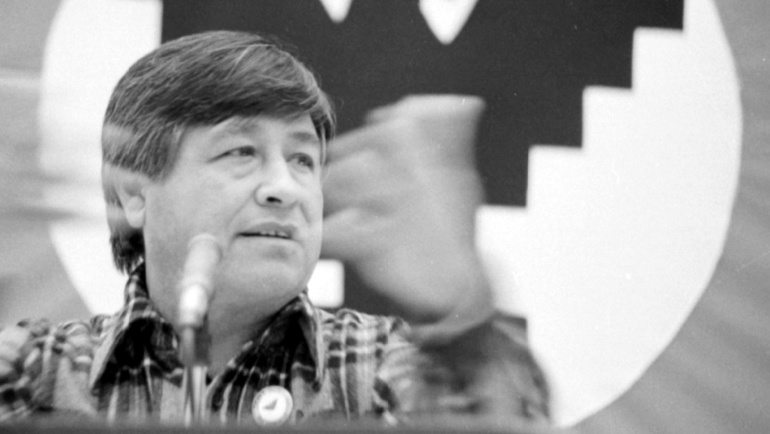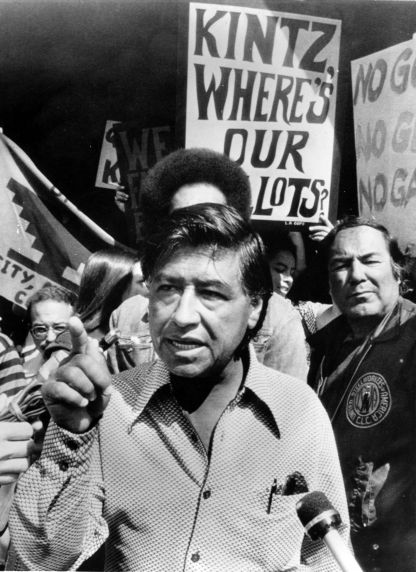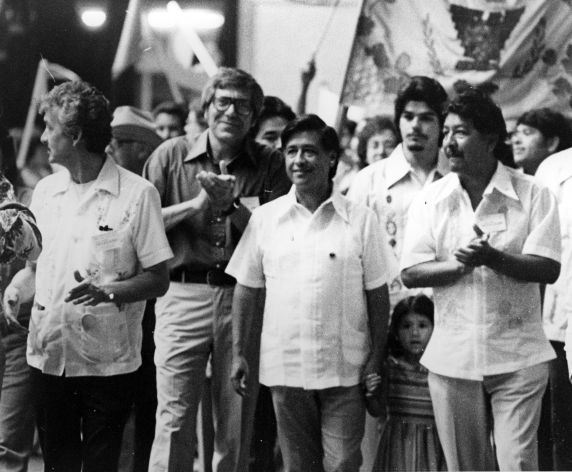
Wayne State’s Board of Governors unanimously adopted a resolution during their March 12 meeting honoring César E. Chávez, founder and former president of the National Farm Workers Association — later known as the United Farm Workers of America — and named March 31 an annual day of recognition for him on campus.
César E. Chávez Day will honor one of the heroic figures of the 20th century, who inspired millions in the nation into action for economic justice, civil rights and political empowerment. Through this effort, the university will become a partner alongside Latino/Hispanic, labor, civil rights, interfaith and other leaders who are working together to ensure that the legacy of Chávez is recognized and celebrated as a day of service and learning.
The Walter P. Reuther Library, established at Wayne State University in 1960 with the goal of collecting and preserving original source materials relating to the American labor movement, includes the papers of César E. Chávez.

A second-generation American, Chávez was born on March 31, 1927, near his family’s farm in Yuma, Arizona. When Chávez was 10, he and his family became migrant farm workers after losing their farm in the Great Depression. Throughout his youth and into adulthood, he migrated across the southwest United States, laboring in the fields and vineyards, where he was exposed to the hardships and injustices of farm worker life.
Chávez led the historic "Sí Se Puede" non-violent movement for farm workers' rights, which included strikes, a five-year boycott of grapes leading to the first labor contracts in the grape fields, personal fast in protest of the use of dangerous pesticides by agribusiness, and historic legislation including the outlawing of the back-breaking short-handled hoe in 1975. Following these efforts to bring awareness to the plight of the migrant workers, the Agricultural Labor Relations Act was established – the first law governing farm labor organizing in the continental United States.
Dedicated to building a movement of poor working people that extended beyond the fields and into cities and towns across the nation, Chávez continued to train and assist young leaders to build worker-led organizations.
Chávez died in his sleep in 1993, in San Luis, Arizona, only miles from his birthplace. More than 50,000 people attended his funeral services in the small town of Delano, California, the same community in which he had planted his seed for social justice only decades before.

“César Chávez was a champion of farm workers’ rights and their participation in the labor movement,” said Wayne State University Board of Governors member and vice chair Mark Gaffney. “He was a leader who intimately knew about the plight of the workers, drawing from his experience as a young man laboring in the fields. Mr. Chávez understood the hardships facing the men and women who received so little for their major contributions to our nation’s agriculture. I am proud to be a part of Wayne State’s Board of Governors in unanimously recognizing his legacy through the university’s annual César E. Chávez Day.”
Among accolades extended to the legacy of Chávez, Michigan Governor Jennifer Granholm signed Public Act 225 of 2003 to designate March 31 of each year as César E. Chávez Day in the state of Michigan. In 2012, President Barack Obama established the César E. Chávez National Monument in Keene, California. The site marks the achievements and contributions to the history of the United States made by Chávez and the farm worker movement that he led.
In 2000, the Committee to Honor César E. Chávez was founded in Grand Rapids, Michigan, and has been led for the past 20 years by political activist, grassroots organizer and educator Lupe Ramos Montigny. The committee is dedicated to promoting the life and legacy of Chávez through endowed college scholarships.
